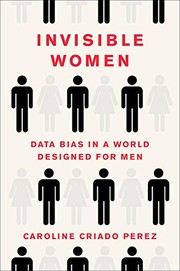loppear reviewed Invisible Women by Caroline Criado Perez
frustrating on the surface and in depth
3 stars
On the one hand this is clear and infuriating, a wide ranging look at how male-as-default, often unquestioned or under-researched, in infrastructure, transportation, medicine, employment and care and GDP, etc, makes the world much worse for women and also for everyone. Yet the book speaks of women almost entirely as a monolithic global whole - slight mentions of hormonal or racial complications, but basically no intersectional or queer consideration. As the author is often asking for better nuanced and dis-aggregated data analysis on this single important binary, we could use a version of this book that took that conclusion to a full embrace of considered complicated no-simple-norms human society.
On the one hand this is clear and infuriating, a wide ranging look at how male-as-default, often unquestioned or under-researched, in infrastructure, transportation, medicine, employment and care and GDP, etc, makes the world much worse for women and also for everyone. Yet the book speaks of women almost entirely as a monolithic global whole - slight mentions of hormonal or racial complications, but basically no intersectional or queer consideration. As the author is often asking for better nuanced and dis-aggregated data analysis on this single important binary, we could use a version of this book that took that conclusion to a full embrace of considered complicated no-simple-norms human society.








